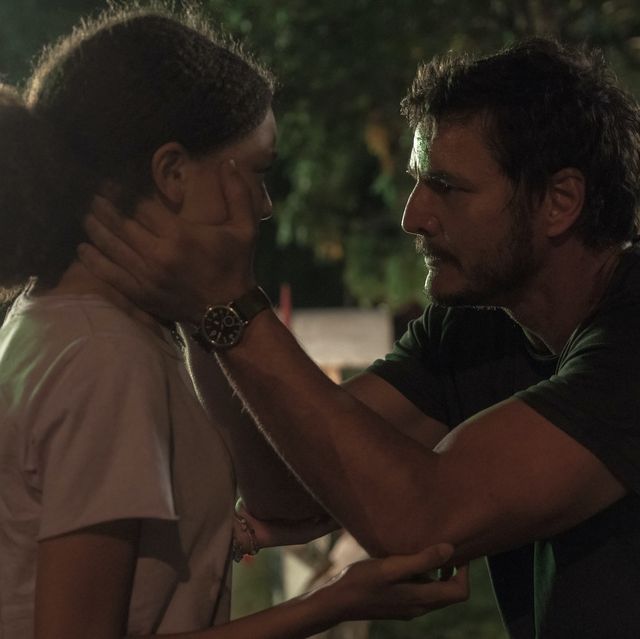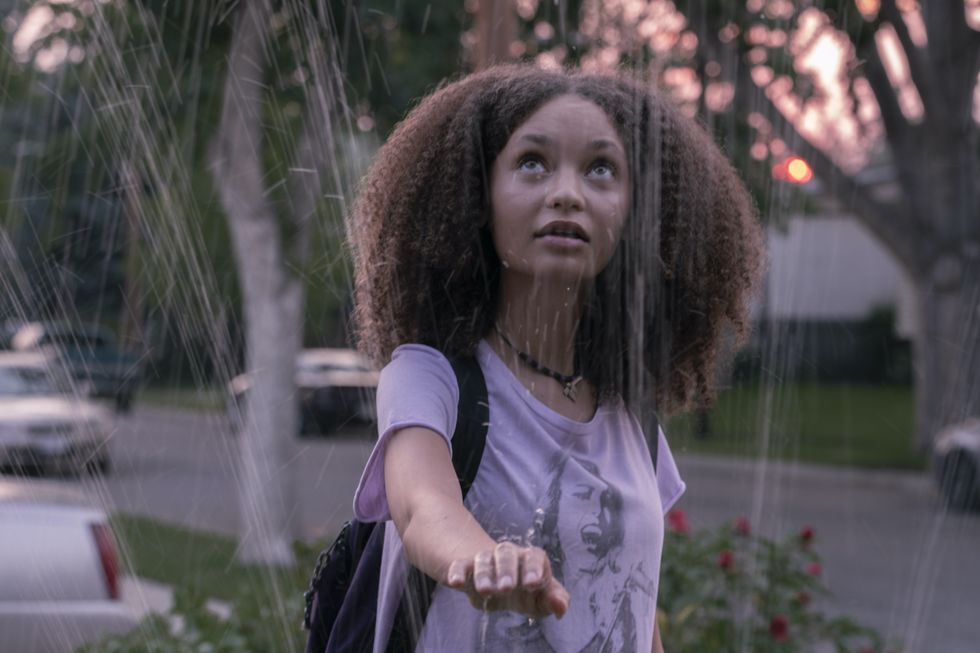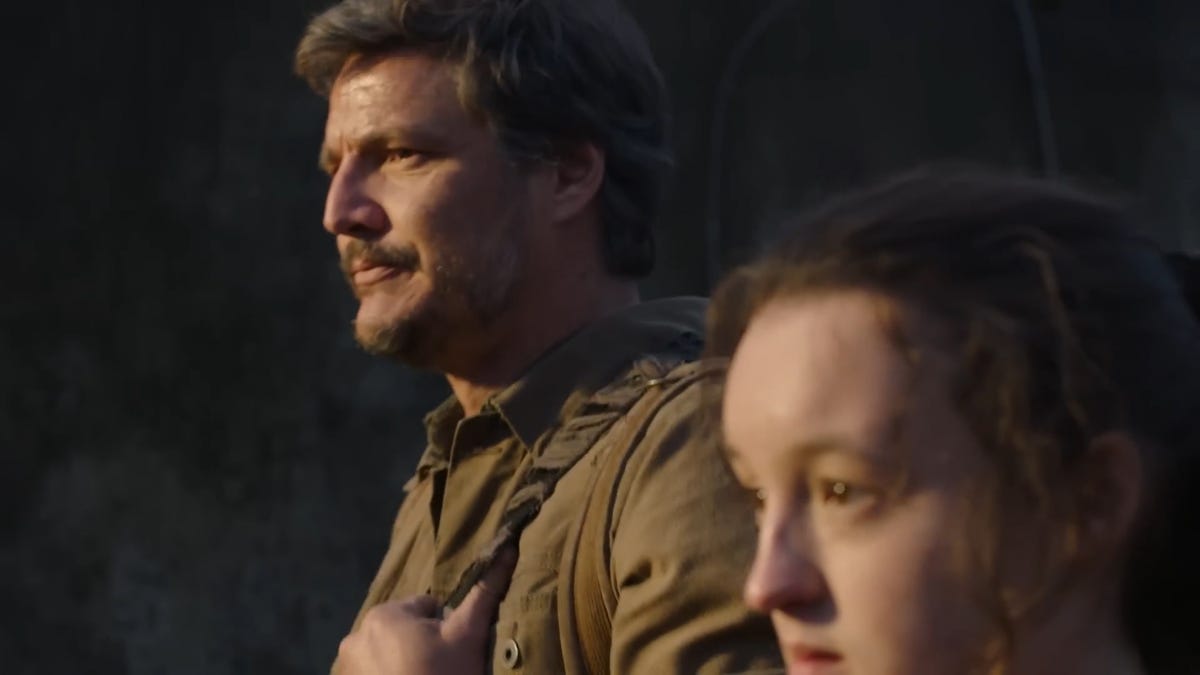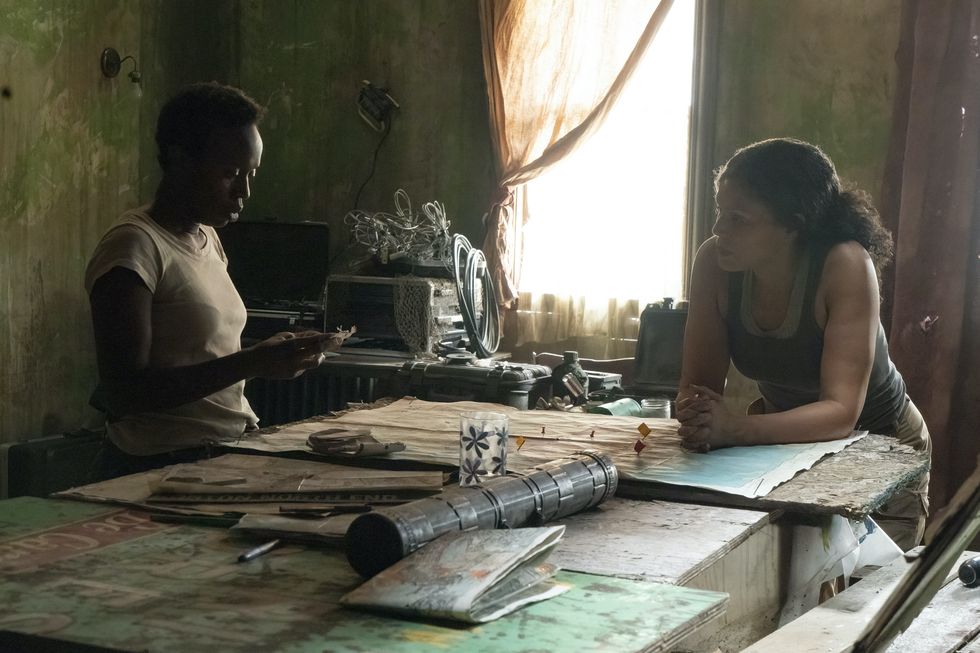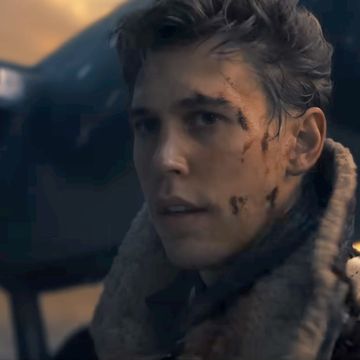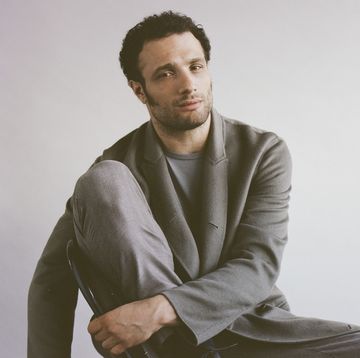Of the not-unsubstantial challenges facing The Last of Us – chief among them, the sad history of videogame adaptations – the more unexpected issue, the one no-one could have predicted (apart from a few very smart scientists), is that we are now very familiar with pandemics. What can this apocalyptic show possibly tell us about a world-stopping virus that we do not already know about?
Well, there are zombies (apparently, we are not supposed to call them that, but if it looks like a duck, and makes incomprehensible noises like a duck...). I’m pretty sure – bar people who swore allegiance to sweatpants for two years – we didn’t have any of those. And the HBO show, co-written by game creator Neil Druckmann and Chernobyl’s Craig Mazin, goes big on the end-of-the-world stuff. It’s an imaginative, though sometimes strangely-realised (that might be the point!) world, which gives the series a much-needed jolt of energy.
But before we get to that, Episode one, “When You’re Lost in the Darkness”, offers a lot of exposition to wade through.
A prologue, which takes place on the set of a 1960s chat show, introduces two scientists offering their view on what disease will end humanity, a segment organised by a cheery producer. Dr Newman (an exquisitely dour John Hannah) believes that fungi will most likely be the end of us, once they learn how to live inside humans. The writing in this scene, funny and a little menacing, is the best of the episode.
Then, delightfully, we are in 2003. Joel (Pedro Pascal) seems to have a mostly normal life: he lives with his switched-on daughter, Sarah (a luminous Nico Parker, whose IRL mother is Thandiwe Newton), in suburban Texas with his nice neighbours (defining characteristics: old, religious). There’s no partner on the scene, and his brother Tommy (handsome, underused Gabriel Luna) causes some trouble. These scenes leading up to the breakout of the Cordyceps infection, have the most distinct feel of the whole episode. The purplish hues, Noughties music (and warnings from Jakarta about the virus) on the radio, jokes about the Atkins diet: there’s a sense of humour and lived-in texture that’s missing elsewhere.
Anyway, for Joel’s birthday, Sarah gets his watch fixed (using his money: it’s the thought that counts!), but when she’s at the repair shop, she is booted out. Sirens blare. Something’s up. Later, to celebrate Joel’s birthday, she borrows a DVD from her elderly neighbour and they watch it on the sofa. But as soon as Sarah has drifted off, Joel gets a call from Tommy: he’s in prison. Can Joel bail him out? Tommy is clearly no good, but Joel can’t resist his brother, a quality I am sure will come to bite him in the ass later.
Sarah wakes up alone, emergency warnings on the TV, the neighbour’s dog barking at the door. She ventures next door, and we get our first glimpse of the infected. The sweet lady now has shoots sprouting out of her mouth. I am no expert on zombies – The Walking Dead was not for me – but this is on the more chilling end of such stuff. Joel and Tommy (who sound like a pair of English builders) turn up just in time, killing the neighbour, and taking Sarah away in the truck.
What follows is classic doomsday drama. Car chases, plane crashes, army blockades: stop me if you’ve heard this one before. After an extended chase sequence, which is well-made if not particularly inventive, the three head off by foot. Sarah is shot dead by a soldier – she was never going to make it through this opener alive, I’m afraid – and the screen goes black.
Then, we are in 2023 (if you don’t like time-jumps, I can only apologise for this premiere). Joel is living in Boston, which has devolved into a strange, medieval, industrial hellscape, with public executions for those who wonder past the quarantine zone. FEDRA, a governmental organisation, now runs things. Joel makes a living, and I am using the word “living” very loosely here, as a smuggler, mostly trading drugs for equipment. He works primarily with Tess (Anna Torv, who brings a much-needed brittle warmth). Their relationship, which hints at a past potentially unrequited love, is the best part of this new world. There’s plenty of murky sub-plot about underground dealings, but the short of it is that they’re looking for a car battery. Joel would like to find his brother.
Meanwhile, Marlene (Merle Dandridge, doing a lot with a little), leader of radical collective Fireflies, has taken Ellie (Bella Ramsey) hostage, chaining her to a radiator. She has been bitten, but hasn’t turned into a zombie just yet. The Fireflies are hoping to take her out west. Their hide-out is then ambushed by wheeler-dealer Robert, just as Joel and Tess stumble in (the geography of this show is, perhaps on purpose, a real head-scratcher).
The confrontation is tense (Tess calls Marlene the “Che Guevara of Boston”), but they eventually make a deal: if the pair get Ellie out of the quarantine zone, they’ll be rewarded with all the equipment they need. Marlene, bleeding from a gunshot wound, tells him not to fuck things up, though she doesn’t let him know about Ellie’s deal. They sneak out, once again through an underground network, but are caught by a FEDRA soldier keeping watch. Luckily, Joel beats him down in the pouring rain. During the showdown, the soldier tests Ellie (she scans red, which means she’s infected), but Joel and Tess take her through the zone anyway.
In Joel’s empty flat, Depeche Mode’s ‘80s classic “Never Let Me Down Again” plays on the radio, which in his smuggler’s code, means danger. I suspect he doesn’t need a song to know that is headed his way.
‘The Last of Us’ airs weekly on Sky Atlantic and NOWTV
Henry Wong is a senior culture writer at Esquire, working across digital and print. He covers film, television, books, and art for the magazine, and also writes profiles.
